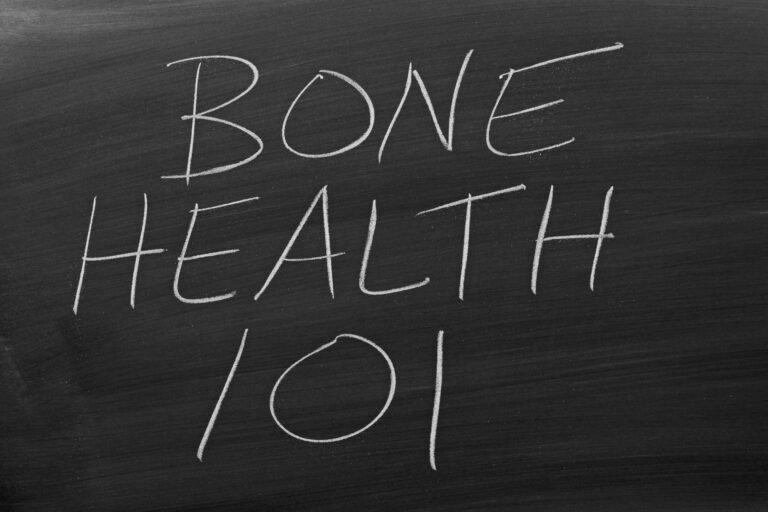As we are realizing the deterioration of bone health is reaching epidemic levels in the US, we must look at what factors are involved that are within our control.
Many health care professionals refer to osteoporosis as a pediatric disease that manifests as an adult. As a child, the pattern is set. Estimates vary from age 15 to age 35 that our bones reach their maximum bone density. If your children are not building quality bone, they will fight for it for the rest of their lives.
We mostly can conserve minerals in our bones after the maximum age, but cannot re-set it. However, we can control our bone health from the center core – the bone matrix. This is the living part of the bone. This is where bone quality comes into play. The Japanese, known for their reduced bone fractures have less bone density on average that we do, but better bone quality. We do have a role in our own bone quality. That means doing the right things and eliminating the things that break it down.
Many vitamins, minerals, proteins and other nutrients play a significant role in quality bone. Numerous studies have shown a direct link between what we eat and osteoporosis. Many processed foods, coffee (not just the caffeine), caffeine, and sugars literally rob calcium from the body, especially from the storage tank (the bones). When consuming these acidic foods, the body needs to neutralize them, and uses our minerals to do the job. One of the worst culprits is soda-pop because it contains caffeine, sugar, and phosphoric acid (carbonation), all of which have been identified as calcium-robbing culprits.
Sugar also appears to interfere with Vitamin C which is necessary for collagen formation in the bone. Other culprits include protein (both excess and deficiency can cause problems with bone), a sedentary lifestyle, rapid weight loss, aluminum in foods and antacids, and vitamin deficiencies have long been associated with damaging bone. Medications such as acid-reducing/suppressing medications, some antidepressants and especially corticosteroid medications have a detrimental effect on bone. The good things which are vital to healthy bone, include: impact exercise, healthy weight loss, ample minerals (not just calcium), vitamins, proteins and essential fatty acids. These are best derived from your foods, which includes lots of green leafy vegetables, whole grains, eggs, fresh fruit for the vitamins, etc. Vitamin and mineral supplements have long been recognized as essential as well, as long as they are from food sources only. We do have a say in our bone outcomes, but we must put the effort in as early in our lives as possible.
©2011 Holly A. Carling, O.M.D., L.Ac., Ph.D.







